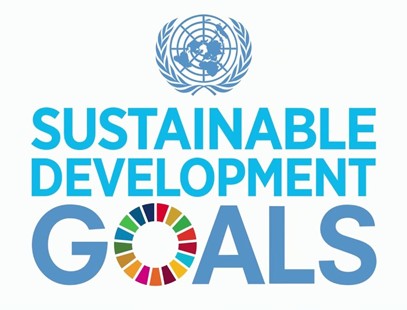Extreme weather, rising sea levels, extinction of plants and animals. Don’t use plastics, don’t burn energy, don’t fly on holiday. There are no end of negative messages about climate change and irreparable damage to the world’s ecosystems.
Trying to fix the earth’s environmental problems seems overwhelming and impossible to do anything about. We want to live our lives yet leave a healthy planet for the next generations.
What can we do? Our politicians and business leaders are criticised for inaction and half measures over tackling climate change. Is there any point doing anything?
We can do something. It’s not too late to protect our planet.
Many people are increasingly aware of the need to take action – and are willing to do so. Millions of school children around the world have taken part in the climate strikes started by Greta Thunberg, and some argue this has done more to galvanise real action than years of posturing by politicians.
If every International House school included environmental and global citizenship topics in its curriculum, this would contribute to raising your students' awareness toward sustainability. The more we educate everybody the more likely they are to change their individual behaviour. Students' involvement in global citizenship illustrates their awareness of global environmental, social and economic issues and can increase their desire to tackle them. And the reality is that our students are the ones who are very engaged with this topic and usually very ready to take action.
IH schools are focused on teaching languages, but integrating environmental sustainability and citizenship within our curriculum is easy. It’s a positive step every school can take.
You may have programmes or courses specifically around environmental topics or include lessons within your usual curriculum.
 ELT Footprint
ELT Footprint
Our inspirational friends at ELT Footprint have been collecting resources such as this for a while. Check out their materials bank here.
Resources include mini-project lesson plans, stories about individuals who are making a difference, and You could use these resources sprinkled throughout your usual courses. It’s not too late to build them into your curriculum now!
UN Sustainability Goals
 Climate Action is one of the 17 UN Sustainability Goals. Together, these are much wider in scope than just the environment, but there are lots of themes that could be incorporated throughout your curriculum. There are loads of educational resources and ideas for lessons – even full lesson plans.
Climate Action is one of the 17 UN Sustainability Goals. Together, these are much wider in scope than just the environment, but there are lots of themes that could be incorporated throughout your curriculum. There are loads of educational resources and ideas for lessons – even full lesson plans.
The World’s Largest Lesson wants to engage and inspire students to take action: ‘Be a part of the solution, not the pollution.’ Taking the UN sustainability goals, it has developed hundreds of resources in engaging formats, for example videos on YouTube, project ideas, full lesson plans, etc. These are designed for mainstream education, so there will be more content suitable for children, but anybody in a language classroom would be able to get some inspiration from the wealth of material here.
The particularly good thing about this is that there are resources in English, Spanish, French, German, Arabic and Russian. So, if you are teaching one of these languages you have ready-made materials.
ELT Sustainable
Owain Llewellyn is an English language teacher, teacher trainer and environmentalist. He has created the ELT Sustainable website to share one environmental/sustainability related English language classroom lesson every month of the year.
His lessons are divided by topic so you will easily be able to find the theme you are looking for, whether that’s transport, food and drink, fashion or culture, plus many more. His website also has other resources, such as videos, articles and teacher training courses, so it really is something you should bookmark!
Global Citizen
If you want to go the whole nine yards, you could develop a ‘Global Citizen’ course. Some publishers have created coursebooks designed to expose students to different cultures, places, and ideas from all around the world. Introducing learners to the diversity of global customs, traditions, and ways of life and learning about cultures other than their own helps young people develop a multi-cultural outlook.
In any global citizen course, you will include some lessons and topics to discuss ethical behaviour.
Student Projects
There is huge scope for student projects to develop ideas around sustainability – about the topics that matter to them. This could be smaller projects integrated into the term, or for more specialist holiday courses. And the wonderful connections IH has around the globe gives opportunities for students in different schools and countries to participate together. The online world that we have become used to recently really can bring down borders.
Our own wonderful DOS Coordinator, Lucie, will be sharing ideas and resources with the DOS group, so please take part, take what is available, and share what you are doing.
This is a huge topic, and a huge challenge. But we can be the change. International House and our thousands of students around the world can be part of the solution. Do something positive.
-
Read more about the IH Environmental Sustainability Scheme!
#IHProtectOurPlanet
